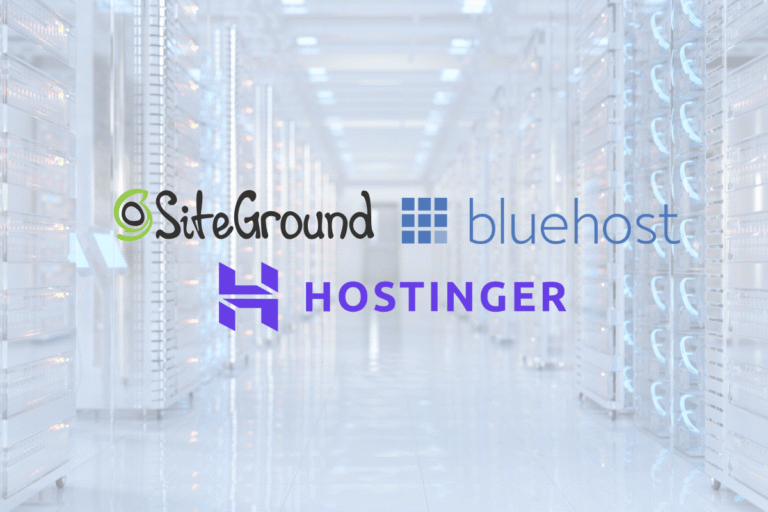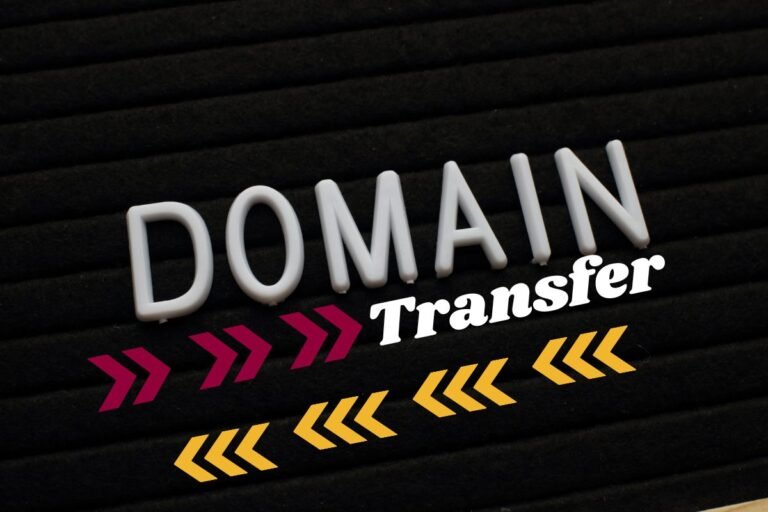
Customers expect the little lock icon. Search engines do, too. The good news: you no longer have to pay extra for it. Hosting with free SSL is now the norm across most reputable providers, so you can launch securely without padding your budget. In this guide, you’ll see which hosts include free SSL by default, how their offers differ, and the quick steps to enable HTTPS the right way.
What “Free SSL” Means Today And Why It Matters
A few years ago, you had to buy an SSL certificate separately, install it, and repeat the process every year. Today, most hosts automatically provision a free TLS/SSL certificate, usually from Let’s Encrypt or Sectigo, for every domain you add to your plan.
Why it matters:
- Trust and conversions: Browsers flag non-HTTPS pages as “Not secure.” That’s a conversion killer on checkout or lead forms.
- SEO and performance: HTTPS is a confirmed ranking factor, and modern protocols (HTTP/2, HTTP/3) ride on TLS for faster parallel requests.
- Data integrity: Prevents tampering and man-in-the-middle snooping between your visitors and server.
What “free” typically includes:
- Domain-validated (DV) certificates issued automatically via ACME (Let’s Encrypt) or vendor tooling
- Auto-renewal every 60–90 days
- Support for both www and root (apex) domains
What it doesn’t usually include:
- Organization Validation (OV) or Extended Validation (EV) paperwork and warranty perks
- Enterprise-grade SLAs or custom compliance features
Bottom line: For most small businesses, creators, and even busy content sites, free DV SSL is exactly what you need, and it’s widely supported.
How To Choose Hosting With Free SSL
Free SSL is table stakes, so compare what actually separates hosts:
- Provisioning method: Instant, automatic SSL on add-on domains is ideal. Look for AutoSSL, Let’s Encrypt integration, or one-click provisioning.
- HTTPS performance: HTTP/2 and HTTP/3/QUIC support, Brotli compression, and edge caching/CDN can produce real speed gains.
- Renewal reliability: Auto-renewal should be hands-off, even after DNS or server changes.
- Wildcard support: Useful if you run many subdomains (blog.yourdomain.com, app.yourdomain.com). Some hosts automate this: others require DNS-01 validation.
- Staging and sub-environments: Managed WordPress hosts should issue SSL for staging and dev URLs automatically.
- Support and tooling: Clear dashboards, redirect helpers (HTTP→HTTPS), and simple mixed content fixes help non-technical users.
- Uptime and global reach: A 99.9%+ uptime SLA and globally distributed infrastructure/CDN endpoints keep HTTPS fast worldwide.
- Transparent pricing: SSL is free, but watch renewal rates for hosting itself, backup fees, and add-on costs.
Pro tip: If a host makes you open tickets every time you add a domain or subdomain just to get SSL, keep looking. The best providers do it automatically within minutes.
Best Shared And Budget Hosts With Free SSL
These providers balance price, performance, and simplicity, and include free SSL out of the box.
Hostinger
- SSL approach: Automatic Let’s Encrypt certificates for primary and add-on domains with auto-renewal.
- Why choose it: Very competitive pricing, LiteSpeed servers with HTTP/3, and an easy hPanel that walks you through domain setup and HTTPS redirects.
- Good for: New sites, small businesses, and budget-conscious bloggers who still want modern performance.
SiteGround
- SSL approach: Built-in Let’s Encrypt and Let’s Encrypt Wildcard, one-click issuance, and automatic renewals. Includes a robust security stack and SG Optimizer.
- Why choose it: Excellent WordPress tooling, fast support, and Google Cloud infrastructure. Automatic HTTPS enforcement and QUIC support.
- Good for: WordPress users who want a smooth setup and reliable scaling without jumping to managed WordPress pricing.
DreamHost
- SSL approach: Free Let’s Encrypt DV certificates for all domains, auto-provisioned.
- Why choose it: Clean, transparent pricing, strong privacy stance, and solid performance. Simple panel for redirects and HTTPS-only.
- Good for: Bloggers and small businesses that value straightforward pricing and US-based support.
A2 Hosting
- SSL approach: Free Let’s Encrypt DV certificates across plans with AutoSSL on cPanel.
- Why choose it: Turbo servers on higher tiers, developer-friendly features, and HTTP/3. A2 has long emphasized performance tuning.
- Good for: Users who might outgrow basic shared hosting and want headroom without switching providers.
IONOS (1&1)
- SSL approach: Free Wildcard SSL on many shared plans (varies by package), covering root and subdomains.
- Why choose it: Aggressive intro pricing, global data centers, and straightforward site tools.
- Good for: Cost-sensitive small businesses who want set-and-forget SSL, including subdomains.
Namecheap Hosting
- SSL approach: Free Sectigo/Let’s Encrypt DV certificates on shared and managed WordPress plans.
- Why choose it: Low entry pricing, solid value add-ons, and easy DNS if your domains already live at Namecheap.
- Good for: Freelancers managing multiple low-traffic client sites on a budget.
Best Managed WordPress Hosts With Free SSL
If you want premium support, staging, and performance tuned for WordPress, managed providers add polish, free SSL included.
WP Engine
- SSL approach: Free Let’s Encrypt for all environments (production, staging, development) with automatic renewals.
- Why choose it: Top-tier WordPress performance, proprietary caching, CDN, and excellent support. Auto-HTTPS and strict security.
- Good for: Sites that need predictable speed at scale and hands-on WordPress expertise.
Kinsta
- SSL approach: Free Cloudflare-integrated SSL with HTTP/3 and edge caching: also supports custom certificates.
- Why choose it: Google Cloud C2/C3 machines, global edge network, and strong observability. Easy redirects and force-HTTPS.
- Good for: Traffic spikes, international audiences, and marketers who care about Core Web Vitals.
Flywheel
- SSL approach: Free Let’s Encrypt for every site, including staging. One-click force-HTTPS.
- Why choose it: Designer-friendly UI, local dev tooling, and simple client billing.
- Good for: Agencies and freelancers who hand off sites to non-technical clients.
Pressable
- SSL approach: Free SSL via Let’s Encrypt with auto-provisioning: integration with Jetpack CDN/security.
- Why choose it: Built by Automattic’s team, multi-site expertise, and strong WooCommerce support.
- Good for: WordPress and WooCommerce stores that want managed reliability without fuss.
Best Cloud/VPS And Developer-Friendly Hosts With Free SSL
Cloud and VPS options give you control and scalability. SSL can still be free, you just might manage more of the stack.
Cloudways
- SSL approach: One-click Let’s Encrypt via the Cloudways platform for any app, with auto-renewal and wildcard support.
- Why choose it: Sits on top of AWS, GCP, DigitalOcean, Vultr, and Akamai: you get managed convenience without raw sysadmin overhead.
- Good for: Agencies and developers who want cloud performance with a friendly panel and painless SSL.
DigitalOcean
- SSL approach: Droplets require you to install Let’s Encrypt (Certbot) manually or via Marketplace images. DigitalOcean Load Balancers and App Platform auto-manage certificates at no extra cost.
- Why choose it: Simple, predictable pricing and a huge developer ecosystem.
- Good for: Developers comfortable with Linux who want control: or teams using managed services like App Platform with hands-off SSL.
Vultr
- SSL approach: For compute instances, install Let’s Encrypt yourself. Vultr Load Balancers can handle free certificates: the Managed Kubernetes Ingress can also terminate TLS.
- Why choose it: Broad global locations and strong performance per dollar.
- Good for: Projects needing worldwide POPs on a budget.
Linode (Akamai)
- SSL approach: On compute, use Let’s Encrypt/Certbot. Akamai (Linode) NodeBalancers and Akamai cloud services can manage certs: recent integrations simplify TLS termination.
- Why choose it: Excellent docs and support culture with competitive pricing.
- Good for: Developers who want approachable cloud plus optional managed layers.
AWS Lightsail
- SSL approach: For instances, use Certbot or Lightsail’s guides. Lightsail Load Balancers integrate with AWS Certificate Manager (ACM) to issue free public certificates that auto-renew.
- Why choose it: AWS under the hood with simpler pricing, snapshots, and scaling.
- Good for: Teams who like AWS reliability with a gentler learning curve.
Ecommerce And Site Builders That Include Free SSL
If you’d rather not manage servers, these platforms include free SSL and handle renewals automatically.
Shopify
- SSL approach: Automatic certificates for your storefront and checkout. No extra charge.
- Why choose it: Payment-grade security, fast global delivery, and a massive app ecosystem.
- Good for: Merchants who want to launch quickly with bulletproof checkout.
BigCommerce
- SSL approach: Free DV SSL on storefronts: optional paid OV/EV certificates for brand assurance.
- Why choose it: Built-in enterprise features and strong multi-channel integrations.
- Good for: Stores that expect to scale and need robust catalog features.
WordPress.com
- SSL approach: Automatic free SSL for all custom domains on WordPress.com plans.
- Why choose it: Hosting included, automatic updates, and a well-tuned global edge.
- Good for: Content-led sites that don’t want to manage plugins or servers.
Wix
- SSL approach: Free SSL activated automatically for every site.
- Why choose it: Drag-and-drop builder, built-in marketing tools, and fast setup.
- Good for: Small businesses and portfolios that value ease over customization.
Squarespace
- SSL approach: Free SSL for all domains and subdomains on your site.
- Why choose it: Polished templates, solid ecommerce, and dependable performance.
- Good for: Brand-conscious creators who want design-first simplicity.
Setup Guide: Enabling Free SSL And HTTPS Redirects
The exact clicks depend on your panel, but the flow is similar: add your domain, issue the certificate, enforce HTTPS, and fix mixed content.
cPanel/WHM (AutoSSL)
- Add the domain in cPanel (Domains → Create/Addon).
- Enable AutoSSL in WHM (if you’re a reseller) or ensure your host has it on.
- cPanel → SSL/TLS Status → Run AutoSSL. Watch for “AutoSSL Domain Validated.”
- Force HTTPS: Domains → Force HTTPS Redirect (toggle on) or use the domain’s “Redirects” tool.
- Verify: Visit https://yourdomain.com and look for the padlock. Use SSL Labs to test.
Plesk (Let’s Encrypt Extension)
- Websites & Domains → Let’s Encrypt.
- Select “Include www” and “Secure webmail” if needed.
- Issue and enable auto-renew.
- Hosting Settings → Permanent SEO-safe 301 redirect from HTTP to HTTPS.
- Clear cache/CDN and re-check.
Managed WordPress Dashboards
- SiteGround, WP Engine, Kinsta, and others: You’ll typically see an “SSL” or “Security” tab with a one-click “Enable SSL” or “Force HTTPS.”
- Ensure staging environments also have SSL enabled so you don’t run into mixed-content surprises on launch.
Cloud/VPS With Certbot (Nginx/Apache)
- Point DNS A/AAAA records to your server and wait for propagation.
- Install Certbot: e.g., on Ubuntu,
sudo apt-get update && sudo apt-get install certbot python3-certbot-nginx(or...-apache). - Run:
sudo certbot --nginx -d yourdomain.com -d www.yourdomain.com(adjust for Apache if needed). - Choose “redirect” when prompted to force HTTPS automatically.
- Confirm auto-renew:
sudo systemctl list-timers | grep certbotorcertbot renew --dry-run. - For wildcards: Use DNS-01 challenges with your DNS provider’s plugin, e.g.,
certbot -d *.yourdomain.com -d yourdomain.com --manual --preferred-challenges dnsor an automated DNS plugin.
Using Cloudflare: Flexible vs Full (Strict)
- Flexible: Encrypts only between visitor and Cloudflare, not Cloudflare to your origin. Avoid this unless you truly can’t install a cert on origin.
- Full: Encrypts both legs but doesn’t validate the origin cert. Better than Flexible, still not ideal.
- Full (Strict): Best practice. Valid certificate on origin (Let’s Encrypt is fine) + Cloudflare cert at the edge. Turn on “Always Use HTTPS” and “Automatic HTTPS Rewrites.”
- Tip: If you see redirect loops, ensure you’re not forcing HTTPS twice in conflicting ways (server + Cloudflare). Set one as primary.
Mixed content fixes:
- Make sure theme, CSS, JS, and image URLs use https or // protocol-relative paths.
- In WordPress, update the Site URL and Home URL to https, then search/replace old http URLs with a plugin or WP-CLI.
Limitations, Gotchas, And When To Pay For SSL
Free SSL is fantastic, but there are edge cases:
- Validation level: Free options are DV only. If you need OV/EV validation and a green company name bar (modern browsers downplay it, but some industries still care), you’ll pay.
- Wildcard automation: Let’s Encrypt supports wildcards via DNS challenges. Some shared hosts don’t automate that step: you may need manual DNS records or stick to individual subdomain certs.
- Rate limits & staging churn: Spinning up/destroying many environments quickly can hit Let’s Encrypt rate limits. Managed hosts usually throttle requests safely, but DIY setups should pace issuance.
- Legacy clients: Extremely old browsers/OS versions may not trust newer CAs or modern ciphers. This is rare but relevant for government or embedded device audiences.
- Warranty/insurance: Paid certs sometimes include warranties. They don’t improve security per se but can satisfy enterprise procurement.
- Compliance & visibility: Regulated industries might require specific CAs, certificate lifecycles, or logging. That’s when commercial or custom PKI makes sense.
When to pay for SSL:
- You need OV/EV for procurement or brand posture.
- You need a multi-domain (SAN) certificate controlled under strict policies and auditing.
- Your enterprise security team mandates a particular CA or management platform.
For everyone else, bloggers, SMBs, most ecommerce, free DV with rock-solid auto-renewal is the smart default.
Conclusion
You don’t need a separate line item for certificates anymore. Hosting with free SSL is mainstream, from budget shared plans to premium managed WordPress and modern cloud platforms. Prioritize providers that auto-provision and auto-renew, support HTTP/2/3, and make HTTPS redirects effortless.
If you’re launching your first site, start with a budget host like Hostinger or SiteGround and click once to enable SSL. Running a serious WordPress operation? WP Engine or Kinsta will handle certs across staging and production. Prefer cloud flexibility? Cloudways or a Lightsail load balancer paired with ACM keeps certificates free and hands-off.
Set it up once, test with SSL Labs, enforce HTTPS, and move on to what actually grows your site: content, speed, and conversions. The lock takes care of itself when you pick the right host.
Key Takeaways
- Hosting with free SSL is now standard, delivering trust, SEO gains, and HTTP/2/3 speed via auto‑provisioned DV certs from Let’s Encrypt or Sectigo.
- When choosing hosting with free SSL, prioritize instant automatic issuance, reliable auto‑renewals, wildcard support, staging coverage, and performance features like QUIC, Brotli, CDN, and 99.9%+ uptime.
- Budget-friendly picks with free SSL include Hostinger, SiteGround, DreamHost, A2 Hosting, IONOS, and Namecheap, balancing easy HTTPS, solid support, and transparent pricing.
- Managed WordPress leaders—WP Engine, Kinsta, Flywheel, and Pressable—bundle one‑click SSL across production and staging with strong caching, edge delivery, and auto‑HTTPS.
- For cloud flexibility, use Cloudways or AWS Lightsail load balancers for hands‑off certificates, while DigitalOcean, Vultr, and Linode often require Certbot unless you terminate TLS on managed balancers; site builders like Shopify, WordPress.com, Wix, Squarespace, and BigCommerce include free SSL by default.
- Enable HTTPS the right way: add your domain, issue the cert, force redirects, fix mixed content, prefer Cloudflare Full (Strict), and confirm with SSL Labs—pay only for OV/EV or strict enterprise compliance needs.
Frequently Asked Questions
What does “hosting with free SSL” mean and why does it matter?
Hosting with free SSL means your provider auto-issues a domain-validated (DV) TLS/SSL certificate—usually via Let’s Encrypt or Sectigo—at no extra cost, with auto-renewals. It prevents browser “Not secure” warnings, improves trust and conversions, helps SEO, and enables faster protocols like HTTP/2 and HTTP/3.
Which providers include hosting with free SSL by default?
Several reputable hosts include free SSL out of the box: Hostinger, SiteGround, DreamHost, A2 Hosting, IONOS, and Namecheap Hosting. Managed WordPress hosts like WP Engine, Kinsta, Flywheel, and Pressable do, too. Cloudways and platforms like Shopify, BigCommerce, WordPress.com, Wix, and Squarespace also auto-provision certificates.
How do I enable HTTPS and redirects with a free SSL certificate?
Add your domain, issue the certificate, then force HTTPS. In cPanel, use AutoSSL and toggle Force HTTPS Redirect. In Plesk, use the Let’s Encrypt extension and enable a permanent SEO-safe 301. Managed WordPress dashboards provide one-click “Enable SSL/Force HTTPS.” Verify with https:// and test via SSL Labs.
Do I ever need to pay for SSL if my host includes free DV certificates?
For most sites, free DV SSL is enough. Pay only if you need OV/EV validation for procurement, strict compliance, warranties, or a tightly controlled SAN certificate policy. Some hosts also charge for automated wildcard or enterprise features—otherwise, free DV with reliable auto-renewal is the smart default.
Is free SSL secure enough for ecommerce and SEO?
Yes. Free DV SSL encrypts traffic end-to-end and meets the technical needs of ecommerce checkout and SEO. Search engines prefer HTTPS, and browsers trust reputable CAs like Let’s Encrypt. PCI compliance depends on your platform and overall controls, not whether the certificate is paid or free.
Can I use free SSL for subdomains or a wildcard domain?
Yes. Many hosts issue free certificates for root and www domains automatically. For multiple subdomains, check for automated wildcard support (e.g., SiteGround, Cloudways). Wildcards typically require DNS-01 validation; if your host doesn’t automate that, you can issue individual subdomain certs or use a DNS plugin with Certbot.



